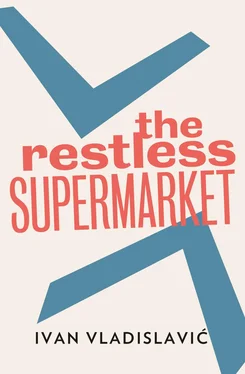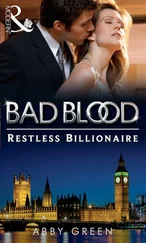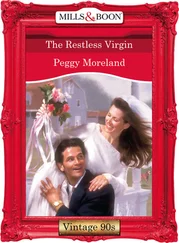Why would a company that sold alcoholic beverages have a pink elephant as its mascot? It was supposedly a sign of extreme intoxication, even of delirium tremens. The Pocket Oxford Dictionary (the incomparable fourth edition, revised and reprinted with corrections in 1957, henceforth referred to as ‘the Pocket ’), which I happened to have stored in the place it was made for, was mum on the derivation, and I’d had no first-hand experience of such things, but the connotations were hardly attractive. Was it black humour? Or mere ignorance? Why not purple snakes? Could the elephant’s name really be Dumbo? Lately, Wessels was always trying to trick me.
He would stow his nightcap under his pillow and hurry back for company. I wasn’t in the mood. I wanted to be gone before he arrived.
Usually when I left the Café, I took a turn around Hillbrow, my daily constitutional, sometimes as far as the Fort, or even the Civic Theatre to watch the sun sink over Braamfontein. Our highveld sunsets are spectacularly garish, thanks to the quantities of mine dust and chemicals in the air. But this evening, I was drawn straight back to the opposite end of Kotze Street.
The one-eared elephant was behind bars, between the two cash desks, with his silver chain and padlock coiled like a serpent at his feet. He was looking out between the burglar bars with the same ecstatic expression frozen on his face. Dumbo? It was possible.
Sausages for a Greek island (7): Salamis. Ruled by Ajax, the king of detergents.
*
I was an old hand at the Café Europa, their most venerable patron, an incorrigible ‘European’. Not a member though, never mind what Wessels said. We were never a club.
I am a proofreader by profession. When I retired half a dozen years ago, I came to live in a flat in Prospect Road on the edge of Hillbrow. Though my vocation had been a solitary one and I was used to my own company (never been married), I felt cooped up at home. The place was spacious enough and light, but my view of the skyline was all nickel and paste by night and factory roofs and television aerials by day. So I ventured out.
The public spaces in my neighbourhood were uninviting. The parks provided no seating arrangements. Where once there had been benches for whites only, now there were no benches at all to discourage loitering. The loiterers were quite happy to lie on the grass, but, needless to say, I was not. The park in Beatrice Street had a bench; but then it also had a reniform paddling pool that attracted the wrong sort of toddler. The public library was a morgue for dead romances. A series of children’s drawings, hideous without exception, had been stuck on the walls in a misguided attempt to brighten the place up. There were no pavement cafés à la française. The weather was suitable, but not the social climate: the city fathers quite rightly did not want people baring their fangs in broad daylight, cluttering the thoroughfares, and giving the have-nots mistaken ideas about wealth and leisure.
After a week of fruitless wandering around the streets of Hillbrow, the happy day arrived when an escalator carried me up into the Café Europa on the first floor of Meissner’s Building in Pretoria Street.
The ambience appealed at once. There was a hush in the din of traffic, a lull in the beat of the sunlight, with a melody tinkling through it like a brook. At the grand piano was a woman in a red evening dress, with a swirl of hair on a lacquered skewer. Even seated, she was tall and imposing. She was playing ‘I Love Paris’, which suited the establishment, if not the city and the season, down to a semiquaver. French doors gave onto a balcony, a sort of elevated pavement café with wrought-iron tables and chairs of bottle-green, shaded by striped umbrellas in the Cinzano livery, delicious monsters and rubber plants in pots. It was tempting to sit out of doors. On the other hand, it was so cool and quiet inside, with comfortable armchairs and sconces for reading by. At half a dozen tables, men of my generation, more or less, were playing backgammon or chess on inlaid boards, or reading newspapers with their folds pinched in wooden staves. Good idea: gave the news a bit of backbone. Another clutch of papers hung from hooks on a pillar, chafing their wings in the moted air.
I crossed the carpet, an autumnal layer as soft and yielding underfoot as oak leaves, past a glass counter where dainties were displayed in rows, like miniatures of the pianist’s hairdo, and chose a little square table against the wall near the French doors, where I could have the best of both worlds: from inside, the ceiling fans circulated a muted hubbub of conversation in foreign tongues, piano music, the clack of dominoes, the smell of cigar smoke and ground coffee; while a breeze from outside carried in the hum of traffic and the scent of the Levant, thanks to the lamb on the rotisserie at the Haifa Hebrew Restaurant down below. The doors were set into a wall of plate glass, segmented by brocade curtains drawn into Corinthian columns, allowing a panoramic view of the buildings opposite. Between two of them, against a postcard of bright blue sky, the top of the Hillbrow Tower stuck up like an attachment for a vacuum cleaner. I had never been fond of it. But then I had never seen it from this perspective — gazing skywards is next to impossible with my bad neck — and I thought it made a touching contrast to the cast-iron Tours d’Eiffel in the balcony railing.
I sat down and opened my paper. I was accustomed to working in silence, and so the piano was unsettling at first, but I would discover in time that the right sort of background music supplies a very productive rhythm for browsing through telephone directories or hunting for literals in the classifieds. A fugue, well played, will facilitate the identification of anagrams, for example, while a march will ginger up a letter to the editor.
The waiter, an affable and fairly efficient old boy who introduced himself as Eveready, brought my tea in a civilized cup and saucer; the cup was spoilt somewhat by a picture of a coffee bean in a sombrero dancing the cachucha, but in these days of polystyrene, the lapse might be forgiven. The serviette was folded into an episcopal mitre. The sugar was in a pot (later one would find it in nasty little sachets, which were supposed to promote economy, and instead encouraged pilfering) and the pot was equipped with a genuine spoon (rather than a plastic spatula). An unobtrusive perspex sign, which now came to my attention, informed me that I was table No. 1, and this pleased me inordinately.
A European ambience. Prima. The least one would expect from an establishment that called itself the Café Europa. Importantly, it was ambience rather than atmosphere. You may find ‘atmosphere’ in fast-food restaurants, thick enough to cut with a plastic knife and obedient to the strictest laws, being the necessary by-product of gingham curtains and sepia-tinted photographs, tables shaped like kegs and lithographs of the Three Little Pigs. Atmosphere is an American commodity. And that is why the citizens of the Golden City covet it. They want to breathe deep-fried oxygen, they want to be part of the Space Age. Europeans prefer ambience, which cannot be pumped in overnight or sprayed on with an aerosol, but has to accrue over time.
*
My first impressions came back to me the day after I heard that the Café was closing. By noon, I found myself walking down to the Europa. I wanted to have the place to myself, before Wessels arrived sloshing over with inanities. I had been dwelling on everything that had happened to me there, on the old days and the old faces, as we think of them, when we mean the younger ones. I was surprised at how indistinct some of those faces had become, ghosts of their former selves. Platitudinously, your memories are a precious possession; they can’t take them away from you, as Mevrouw Bonsma, our pianist, used to insist. I always wondered what she meant. Who were these robbers? And why should they want one’s memories? They would want something of material value, surely, wristwatches, wallets, shoes …
Читать дальше












